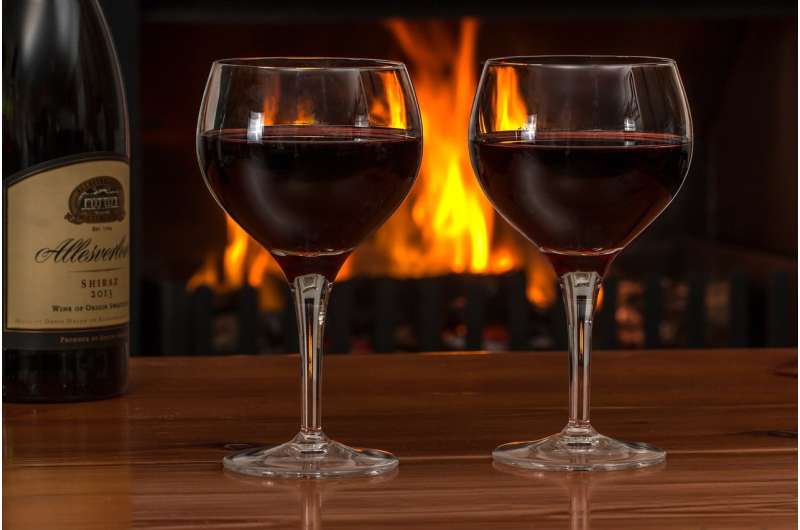Different types of alcohol elicit different emotional responses

Different types of alcohol elicit different emotional responses, but spirits are most frequently associated with feelings of aggression, suggests research published in the online journal BMJ Open.
To explore the potential emotional factors underpinning alcohol preference the researchers drew on anonymised responses to the world's largest online survey of legal and illicit drug and alcohol use among adults (Global Drug Survey or GDS).
The GDS, which is provided in 11 languages, includes specific questions on alcohol consumption and the feelings associated with drinking beer, spirits, and red or white wine when at home or when out.
The emotions included are energised, relaxed, sexy, confident and tired, aggressive, ill, restless, and tearful.
The final analysis included the responses of just under 30,000 18 to 34 year olds from 21 countries who had drunk each of the specified types of alcohol within the past year, and who had filled in all the relevant sections of the questionnaire.
Their answers showed that they attributed different emotions to different types of alcohol.
Spirits were the least likely to be associated with feeling relaxed (20%); red wine was the most likely to elicit this feeling (just under 53%) followed by beer (around 50%).
Drinking spirits was also more likely to draw out negative feelings than all the other types of alcohol. Nearly a third (30%) of spirit drinkers associated this tipple with feelings of aggression compared with around 2.5 per cent of red wine drinkers.
But spirits were more likely to elicit some positive feelings than either beer or wine. Over half (around 59%) of respondents associated these drinks with feelings of energy and confidence. And more than four out of 10 (42.5%) associated them with feeling sexy.
Responses differed by educational attainment, country of origin, and age, with the youngest age group (18-24) the most likely to associate any type of alcohol with feelings of confidence, energy and sexiness when drinking away from home.
The responses also differed by gender and category of alcohol dependency. Women were significantly more likely than men to associate each feeling—except for aggression—with all types of alcohol.
But men were significantly more likely to associate feelings of aggression with all types of alcohol, as were those categorised as heavy/dependent drinkers, who were six times more likely to do so than low risk drinkers.
And heavy drinkers were more likely to select any drink that was associated for them with feelings of aggression and tearfulness when at home or when out.
These findings suggest that dependent drinkers may rely on alcohol to generate the positive emotions they associate with drinking, as they were five times more likely to feel energised than low risk drinkers, say the researchers.
This is an observational study so no firm conclusions can be drawn about cause and effect. And the researchers emphasise that there are likely to be many factors involved in the feelings elicited by alcohol, including advertising, when and where alcohol is drunk, and the alcohol content of different drinks.
But they conclude: "Understanding emotions associated with alcohol consumption is imperative to addressing alcohol misuse, providing insight into what emotions influence drink choice between different groups in the population."
Around 3.3 million deaths and around one in 20 cases of ill health and injury around the globe are directly attributable to alcohol.
Co-author Professor Mark Bellis comments: "For centuries, the history of rum, gin, vodka and other spirits has been laced with violence. This global study suggests even today consuming spirits is more likely to result in feelings of aggression than other drinks.
"In the UK, a litre of off-licence spirits can easily be bought for £15 or less, making a double shot only 75 pence. Such prices can encourage consumption at levels harmful to the health of the drinker and through violence and injuries also represent a risk to the people around them."
More information: Kathryn Ashton et al. Do emotions related to alcohol consumption differ by alcohol type? An international cross-sectional survey of emotions associated with alcohol consumption and influence on drink choice in different settings, BMJ Open (2017). DOI: 10.1136/bmjopen-2017-016089

















